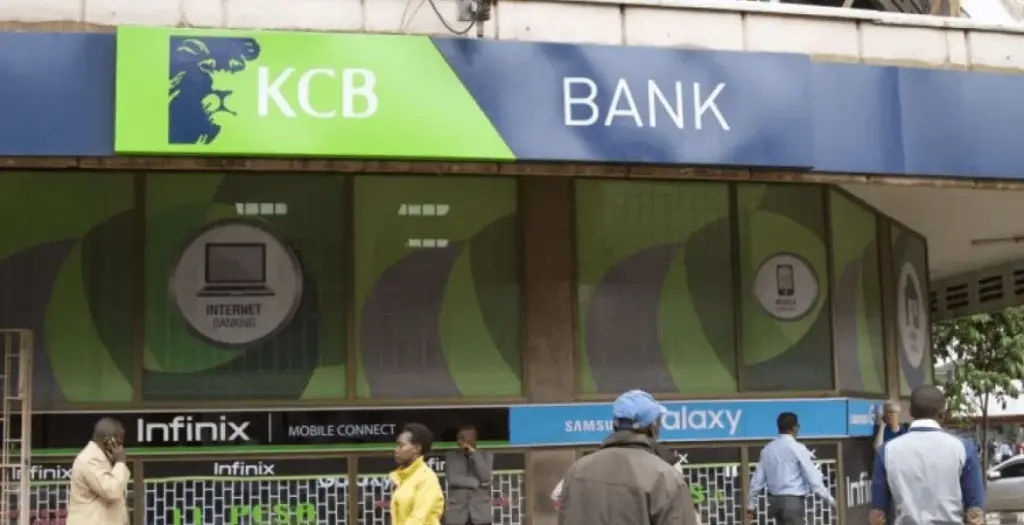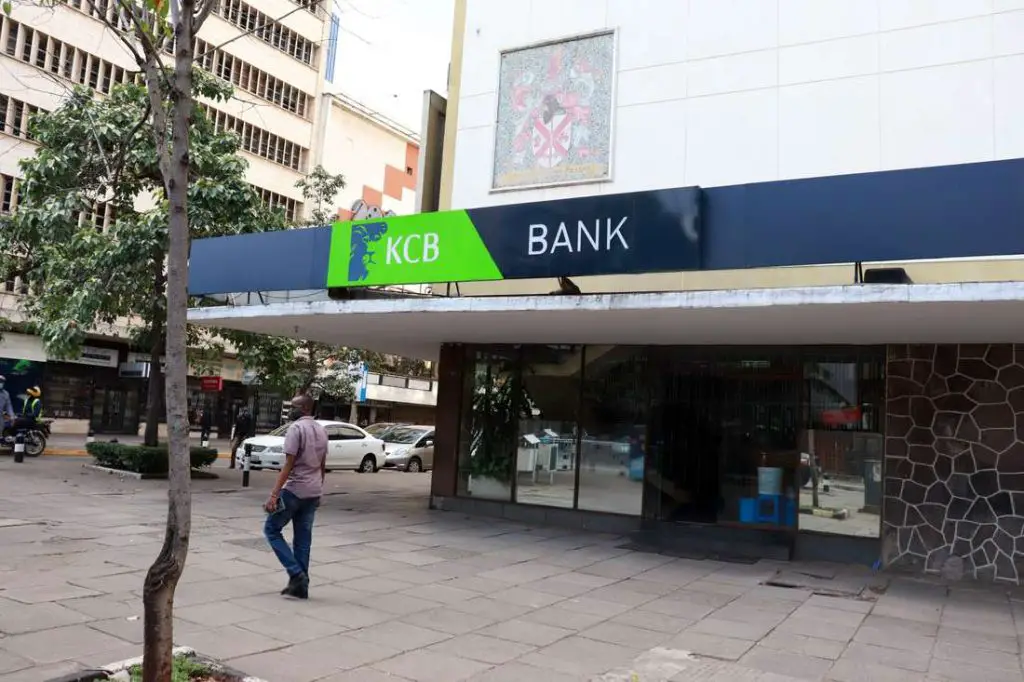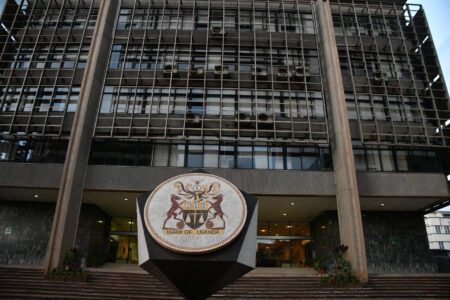- Kenya’s KCB strengthens regional presence with a new branch in Arusha, Tanzania
- KCB eyes branch option in Ethiopia as country eases regulation on foreign bank operations
- Bank’s attempted Tanzania acquisition fails but completes Rwandan lender buyout
Kenya’s KCB is testament to the resilience of East African economies which can be seen in the strength of the bloc’s banks which are not only stable but expanding.
A good example is CRDB in Tanzania which has expanded beyond its country’s borders into Burundi and now heading to the DRC.
Then you have Kenya Commercial Bank (KCB) which already has a presence in at least five African countries and is continuing to grow.
Read: KCB Bank Tanzania allocates US$48 million for SMEs
The most recent expansion by Kenya’s KCB was in Tanzania where the bank launched a mini-branch, at the EAC Secretariat Headquarters in Arusha, Tanzania late last year. This expansion speaks volumes to the merit of Kenya’s banking sector.
Overall speaking, Kenya’s banking industry as exemplified by KCB’s good performance is symbolic of the resilience of Kenya’s economy. The country’s economy has remained strong even in the face of recent economic shock waves wrought by Covid-19 and even regional conflict like the ongoing demonstrations in Sudan.
Actually, according to the Africa Development Bank (AfDB), Kenya’s economy is well on its way towards a full recovery, if no other Ovid waves emerge that is. However, it is not all sugar and candy, the AfDB does acknowledge that “…nearly 2 million people are estimated to have fallen into poverty, and nearly 900,000 lost their jobs,” over the cause of the pandemic.
Nonetheless, Kenya’s economic growth outlook is positive, says the bank and even projects that this year, Kenya’s economy will grow 5.9% up from last year’s 5.0%.
In this most recent launch of the mini-branch at the EAC HQ in Arusha, KCB brings relief by increasing ease of access to banking services for the EAC staff, delegates as well as visitors. In so doing, the bank also cements Kenya’s economic supremacy in the region and strengthens relations.
Completed recently, the mini-branch came into being following the signing of a Memorandum of Understanding (MOU) between the EAC Secretary General Dr. Peter Mathuki and KCB Tanzania Managing Director Cosmas Kimario.
At the signing event, Dr. Mathuki said the mini-branch, located on the ground floor of the EAC headquarters, will serve to provide the full range of banking services. Now visitors to the branch can access account opening, cash withdrawal and deposit, money transfers, loan processing and ATM services all within the EAC HQ at the KCB mini-branch.
Other than these basic banking services, the Kenya KCB branch at the EAC in Arusha will also offer money transfer services like MoneyGram and Western Union options.
“We have installed an ATM machine that is dispensing both local currency and dollars, to ease financial transactions for all and save on time previously spend lining up at the bank,” noted the EAC Secretary-General.
On his part, Kimario, the KCB Tanzania Managing Director said the branch will operate during regular working hours through the week (Monday to Friday).
“The EAC Secretariat has been a consistent and long-standing partner of KCB Tanzania and we are proud to scale up the partnership, in a move geared to bringing our services closer to our customers,” he said.

KCB: Journey to regional supremacy
Kenya Commercial Bank (KCB) is a leader in East and Central Africa banking services. With a presence in five East African markets including Tanzania, Ethiopia and even in the DRC, the bank now boasts the status of a regional bank.
In mega markets like the DRC, the bank stands to bring much needed financial and banking services closer to the people. Notably, access to banking services in the DRC is considerably lower than in other sub-Saharan African countries.
This offers huge marketing and investment options for visionary banks like Kenya’s KCB since statistics show that about 90 per cent of the DRC population remains unbanked. Further still, legislation and banking laws in the DRC are very welcoming to external investors.
The story is a little different in neighbouring Ethiopia. Here, the law bars foreign banks from operating in the country and as a result, even though KCB has had operating offices in Ethiopia since 2015, it has not been able to create a fully fledged branch.
Things are looking up in Ethiopia and investors like KCB may very well get access to this enormous market of 100 million people. Recently, Ethiopia’s Prime Minister, Ahmed Abiy the announced several economic reforms including the review of said ban on foreign banks in a bid to attract foreign investments.
Also Read: KCB Targets SMEs With New Mobile Payment Product
Trouble in paradise, a failed acquisition
Even though the Kenya banking sector is strong, not all expansion plans by the regional bank have been a success story, there is dirt in some nooks and crannies. A good example is the last year cancellation of a planned acquisition of a Tanzanian lender by the KCB Group.
The plan was sound and from the general outlook, the deal was even going to be profitable. However, at the very last minute, KCB was forced to cancel its acquisition plans with the London-listed Atlas Mara Limited.
Generally, no specific reason was given as to what made KCB back away from the deal except a statement that claimed, issues with regulatory hurdles.
The original plan was to acquire a 100 per cent stake of the African Banking Corporation Tanzania Limited (BancABC). Had it gone through, the deal was worth $8 million but as stated, there were regulatory issues.
Media statements issued following the cancellation said; “As announced, completion of the transaction was subject to certain conditions…including receipt of all regulatory approvals. As of the date hereof, certain regulatory approvals have not been received within the prescribed time frame specified in the Agreement.”
In the released media report that carried the bank’s communication to shareholders, KCB said; “As a result, without further agreement by the parties to extend the long-stop date, the agreement has been terminated and, accordingly, the parties will not proceed to complete the transaction as previously envisaged.”
Things may not have worked out with the Tanzanian lender but that did not stop KCB from closing a deal with another lender just across the border in Rwanda. Here, KCB bought 62.06 per cent stake in Banque Populaire Du Rwanda (BPR) for an impressive $32 million from the cash troubled Atlas Mara.
It is expected that the Kenya banking industry will only grow stronger as the economy stabilizers and FDI increases.
Read: Kenya’s biggest commercial bank receives Shs. 10.4 billion from AfDB











